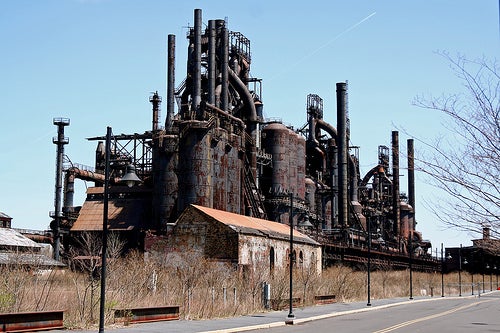WCP: Losing the Narrative of Their Lives
Posted in Visiting Scholars | Tagged Contemporary fiction, Deindustrialization, Fiction, John Russo, Literature, Sherry Linkon, WCP, Working-Class Culture, Working-Class Perspectives
A recent study finding increased death rates for white, working-class Americans has fueled a national discussion about the impact of economic insecurity. In today’s Working-Class Perspectives post, Georgetown English professor Sherry Linkon traces the consequences of major changes in working-class culture in contemporary fiction.
If we want to understand the social and cultural patterns fully, I would argue, we must consider not only the material conditions or social structures that shape economic experience but also how people interpret those experiences and construct their identities in response to them. We would do well to attend not only to statistical evidence but also to stories, which provide insight into how people experience and make sense of economic and social changes. This is the kind of insight that literature can provide. By representing the social world through the stories of individuals, fiction, especially, can help us understand what large-scale change looks and feels like on a personal, subjective level.
The long-term effects of deindustrialization – what I refer to as its half-life – have generated not only measurable social patterns like rising death rates but also a growing body of literature. If you want to understand the “lost narrative” of contemporary working-class lives, you might well begin with these books.
You can read the blog post in its entirety as well as other Working-Class Perspectives posts on our website.
Professor Sherry Linkon edits the renowned Working-Class Perspectives blog with John Russo, our Visiting Scholar for the 2015-16 academic year.

